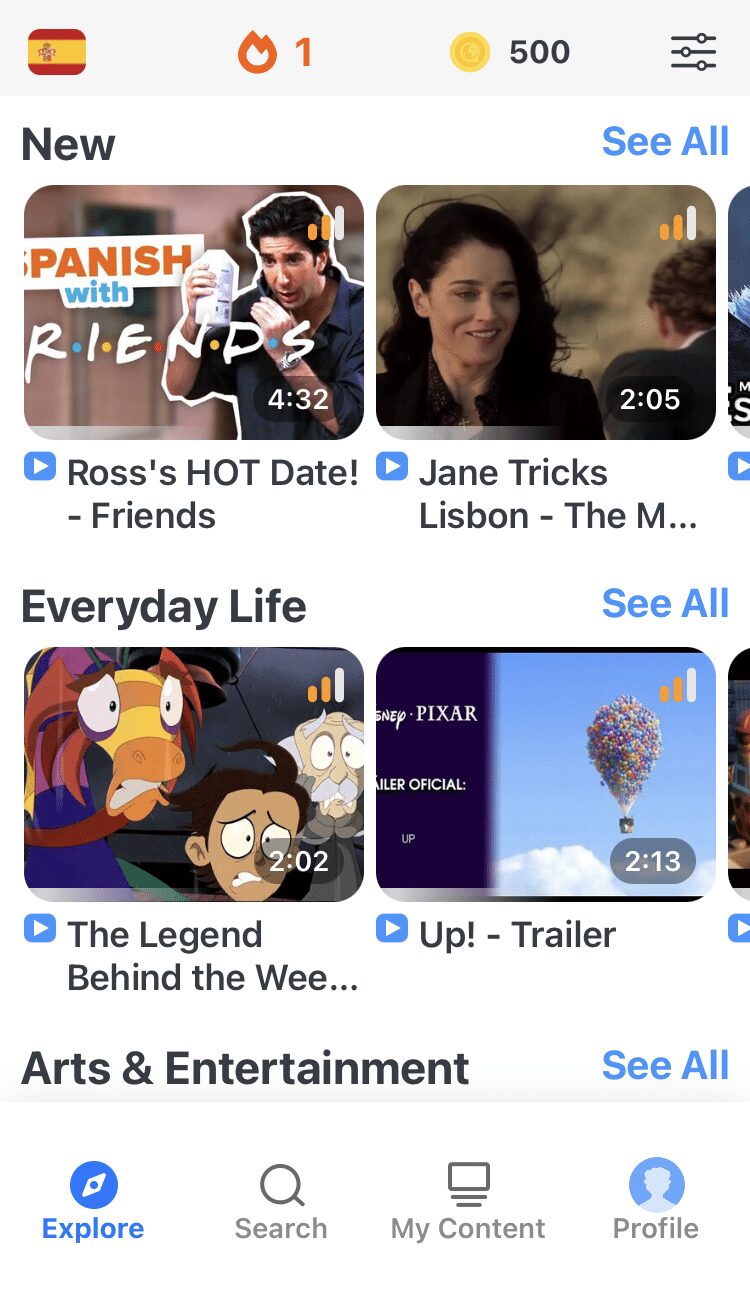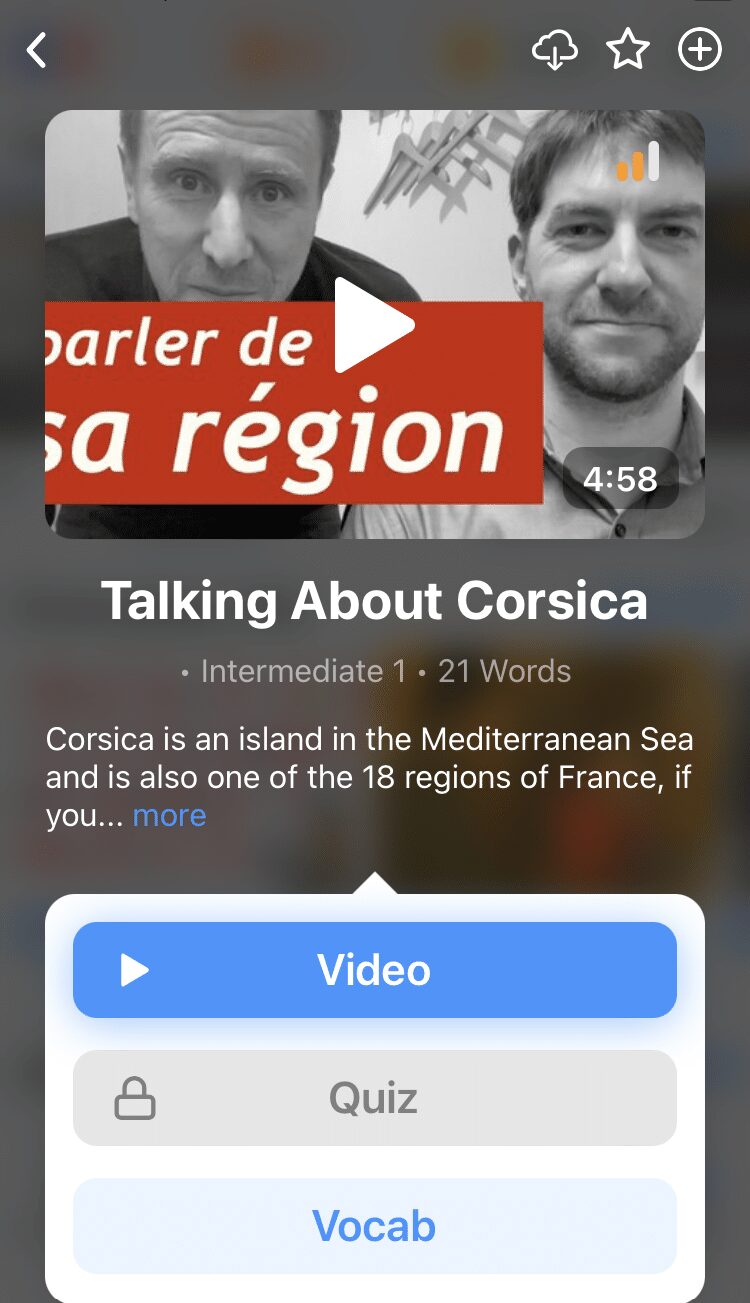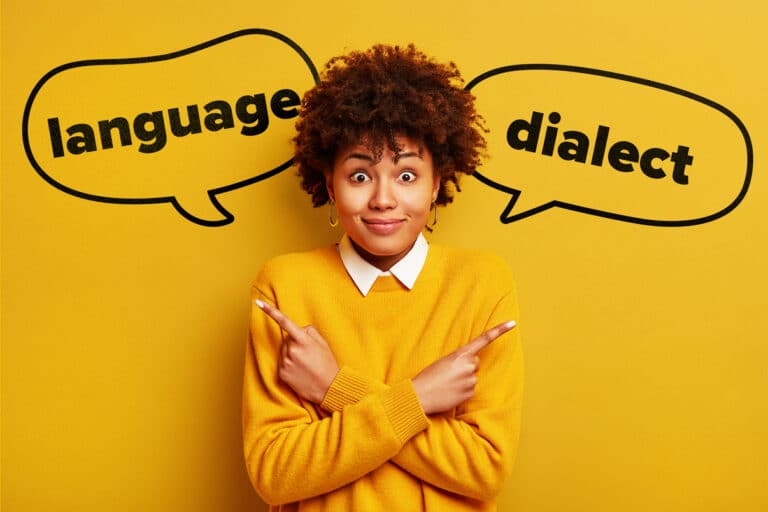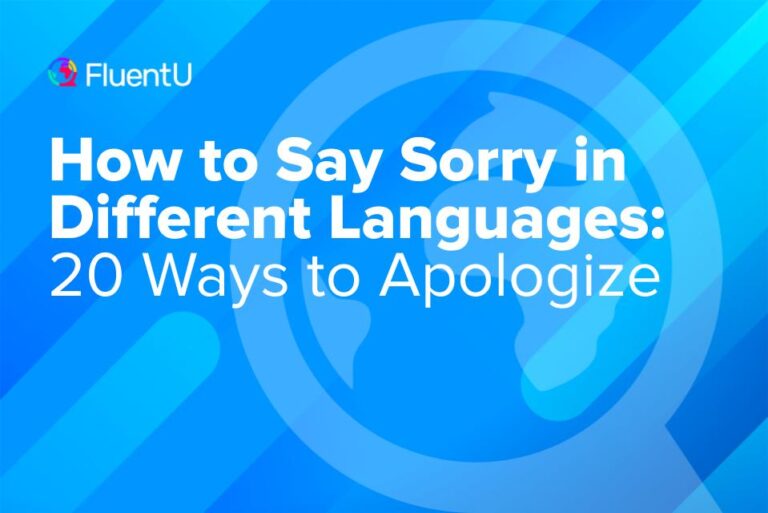Contents
- 1. People try to test your knowledge
- 2. You mix up languages
- 3. Subtitles give you anxiety
- 4. You feel insulted by bad translations
- 5. They only like you ’cause you’re a native
- 6. You only like them ’cause they’re native…
- 7. …but they only speak to you in English
- 8. You know the word in every language except your native one
- 9. You want to learn another new language
- 10. Reading does not mean comprehension
- 11. Mediocrity has become an unlikely ally
- 12. You have an internal battle when Google asks if it should translate the page
- 13. Native speakers think that you don’t understand them
- 14. When you speak your target language and they respond in English
- 15. People can’t tell which is your “real” personality
- 16. It’s hard to be in multicultural locales
- 17. You try to translate idioms to no avail
- 18. You panic studying one language because you’re worried you’ll forget the others
- 19. You say polyglot, they think… something else
- 20. You’ve thought about learning a fictional language
- 21. Most of your friends just don’t get you
- And One More Thing...
21 Amusing Problems That Only Polyglots Understand

Most of the time being multilingual is great, but every now and then there are some problems you encounter simply because you know multiple languages. Even if you’re not fluent in all of them, you’ve probably still come across some polyglot problems—which are often more like hilarious nuisances, anyways.
We polyglots have issues and we’ll cry about them if we want to, and in several different languages if we must. How many of these 21 polyglot problems can you relate to?
Download: This blog post is available as a convenient and portable PDF that you can take anywhere. Click here to get a copy. (Download)
1. People try to test your knowledge
“You speak how many languages?! Say something in ___! Now in ___! Now in ___!” Somehow your hard work and practice becomes something of a parlor trick for friends, family and sometimes strangers.
But polyglots are a resilient bunch. Don’t huff and puff next time you hear this “request.” Smile, show off and make everyone around you a little jealous. They asked for it, anyway.
2. You mix up languages
“Je voudrais (French) un vaso de agua (Spanish), per favore (Italian).” (I’d like a glass of water, please).
This is a pretty common occurrence for people who speak multiple languages.
Sometimes, you aren’t sure of a word and replace it with another foreign word, and sometimes your brain just rattles off foreign words at will, it seems.
Either way, when this happens, don’t beat yourself up. Just try to slow down when you speak, and the words (in just one language, hopefully) will come to you more easily.
3. Subtitles give you anxiety
It’s no secret that we polyglots like to use subtitles when watching TV or movies to maximize our productivity, even if the audio is in our native tongue.
The trouble is, we never really know which language to choose for the subtitles. There are just too many options. It’s almost enough to make you toss your remote and give up on TV forever.
Next time this happens, try just adding subtitles (or audio!) in the language you struggle with the most. Learning through entertainment is one of the best—and most pleasant—ways to focus on the trickier language issues you’ve been trying to avoid.
4. You feel insulted by bad translations
So, you’ve decided which subtitles to use. As you’re watching the show you realize that you’re much more fluent than you thought, because every few seconds you’re shouting at the TV, “That’s not what that means!”
Nothing sends a polyglot over the edge like a bad translation. It’s unacceptable and someone should pay. Perhaps you can write an angry letter shaming the translator for their less than perfect work—or the production staff for relying on machines and AI instead of a real human translator.
5. They only like you ’cause you’re a native
This happens often in the language learning community. People seek you out solely because you’re a native English speaker. But you’re more than your language abilities. You’re funny, creative, a good listener, loyal. The list goes on.
Maybe your new friend will learn to love you for who you are, but as of now, they just want you for your vocab.
6. You only like them ’cause they’re native…
Can’t really get too mad at that last guy, can you? You probably have a friend for every language that you speak.
It doesn’t mean you’re a bad person. As long as you’re kind and consistent, a genuine friendship is likely to flourish anyway, and you’ll have a language buddy for life.
7. …but they only speak to you in English
…except if they only speak to you in English.
This union is now a waste of your time. Find someone else who’s willing to split the time evenly so you can both benefit from the relationship.
8. You know the word in every language except your native one
Can say it in 3 foreign languages, can´t say it in my native #PolyglotProblems #AlmostPolyglot
— Emil Jönsson (@BlackAce919) July 18, 2016
We’re so focused on achieving fluency that we study everything and anything we can. We know massive amounts of vocabulary in the foreign languages we’ve learned, so much so that sometimes we know words for things that we never even learned in our native language.
It’s always a little funny when you can identify an object in several languages, but then you realize you actually have no idea what it’s called in the language you’ve been speaking your entire life.
9. You want to learn another new language
Often even while still struggling with your current ones!
There are several reasons one might decide to pick up a new language while currently studying others: travel, competition, curiosity, love, work or something else.
We want to be able to talk to everyone. It drives us crazy to say “I’m sorry. I don’t understand.”
Still, it’s okay. Life is long. There’s plenty of time to learn others—just try not to rush and get even more confused.
One way to squeeze in another language could be with the language learning program FluentU. This way you’ll be watching content by and for native speakers but with all the tools for a learner.
FluentU takes authentic videos—like music videos, movie trailers, news and inspiring talks—and turns them into personalized language learning lessons.
You can try FluentU for free for 2 weeks. Check out the website or download the iOS app or Android app.
P.S. Click here to take advantage of our current sale! (Expires at the end of this month.)
10. Reading does not mean comprehension
You’ve succeeded. You’re able to read books and documents in French, German and Korean seamlessly. There’s just one problem: You only understand 50% of the text.
Reading is a whole new beast. You encounter new words and you also encounter old words used in ways that you can’t make sense of. It’s stressful. It can make you feel like you’ve learned absolutely nothing.
It’s normal. Besides, if you’re confident enough to read books and documents in a foreign language, you’re much further along than you’re letting yourself believe.
11. Mediocrity has become an unlikely ally
There are some polyglots who seem to have superpowers and can speak all of their learned languages at near-native fluency. Most of us can’t do that. We want to, but it can be a bit much.
It’s quite normal to set a goal for near-native fluency in one or two languages and decide to just be “pretty okay” at all the rest. This isn’t failure—it’s just keeping your sanity.
12. You have an internal battle when Google asks if it should translate the page
What do you do? Do you accept the challenge or do you go native? There’s some important stuff on that website. You can’t afford any misinterpretations.
Oh, but you’re so much better at the language now. You might even learn a word or two now that you’ve mastered context. You did come to this page knowing it wouldn’t be in English but you didn’t expect Google to show up and give a choice. So what to choose?
Your finger hovers back and forth over “yes” and “no.” You have to make a decision, and you have to make it soon. There’s no time to waste. You close your eyes, and click.
13. Native speakers think that you don’t understand them
This is always fun.
Sometimes you’ll be in a place where someone will start talking about you in their language, thinking you don’t understand. People should really stop doing that. Haven’t they seen a single television show or movie? It’s never safe to assume.
If this has ever happened to you, hopefully it was a kind or benign comment. That does happen sometimes. But if someone is talking trash about you, well, there’s no better time to practice oral communication than when you’re giving someone the shock of their life.
14. When you speak your target language and they respond in English
It’s like someone has just burst your bubble. When this happens we feel foolish, and a little bit insulted.
However, many times, people will speak English because they think they’re helping you. Or, maybe, they just want to practice English themselves.
If this happens, and you’ve still got a shred of confidence left, try to pick the conversation back up in your target language. If you’re really bold, ask them to speak in that language and not English. It’s the only way you’re going to get better.
15. People can’t tell which is your “real” personality
In one language you’re timid. In one you’re pragmatic. In one you’re a comedian. It’s not uncommon.
Many of us dance between personalities as we switch languages. Most of the time we don’t even realize it.
You’re not crazy. There have been a ton of studies trying to figure out why this occurs. Just embrace it as being “part of the job.”
16. It’s hard to be in multicultural locales
Ever been in a place and hear several languages you know being spoken at once? That happens quite often to polyglots living in major cities. The brain goes topsy-turvy trying to figure out which language to focus on.
In this situation, it’s often best to pick the one you’re strongest at. That way you’ll be able to hear the words with clarity (as opposed to it sounding like garble if you’re still in the learning stages).
You might even be able to pull out some words or phrases you haven’t learned yet and stick them on your to-do list to learn later.
17. You try to translate idioms to no avail
Who has a good example of these? #PolyglotProblems pic.twitter.com/6MGmhs3KI9
— italki (@italki) June 28, 2016
Yeah, it’s terrible when you’ve got a perfect idiom to whip out but you just can’t.
If you’re trying to tell your Japanese friends that “there’s no cow on the ice” (ingen ko på isen) which means “there’s nothing to worry about” in Swedish, you might be better off just being direct or learning an idiom in that language which has a similar meaning.
The Swedes are right, by the way. There’s really nothing to worry about. Embrace the struggle. It’s part of the process. In due time, this will all come to you like “a roll with butter” (bułka z masłem), as we say in Polish.
18. You panic studying one language because you’re worried you’ll forget the others
It’s simply not true, but we’ve all been there.
You put so much focus on one language. You spend hours, days, weeks or months studying—and then you stop in a panic thinking of the other languages that aren’t getting your attention anymore.
Trust your brain. It’s a lot more reliable than you might like to believe.
Your sentences may sometimes sound like a language smorgasbord (see problem 2), but that goes to show that all the words are in there.
Take your time with each one. Set a schedule and follow it. This way, you’ll know that even though you’re not focusing on the others now, you’ll get back to them later.
19. You say polyglot, they think… something else
People who aren’t language enthusiasts most likely have never even heard the word “polyglot” before.
Since our human brains like to make sense of things, theirs might substitute “polyglot” with something like “polyamorous” (because this word they understand), and so now they’re kind of shocked and bemused.
If you’re met with awkward, uncomfortable looks when you say you’re a polyglot, just assure that person that, actually, you do not have several lovers, though if you did, none of them would speak the same language.
20. You’ve thought about learning a fictional language
Like Dothraki. Or Valyrian. Or Klingon. Or any of the other made-up languages associated with popular fictional series.
Let’s be honest, we all want to sound as cool as Dany Targaryen when she shouts the Valyrian command dracarys (breath fire) to her dragon.
As a polyglot, you simply don’t want to be left out of the language loop, even if you’d only be one of five people in the entire world who speaks the language outside the presence of a film crew.
If you’re perfectly fine being the super-awesome person in the room who doesn’t have to read the subtitles when watching “Game of Thrones,” then we’re fine with it, too.
21. Most of your friends just don’t get you
You’re not doing this for school or for work, but simply for internal glory.
You want to be the ultimate language master of the world. You want to increase your brain function and expand your mindset.
Some people just don’t get that. Some people wouldn’t put that much hard work and dedication into something without the expectation of a tangible reward. That’s fine for them.
We polyglots, on the other hand, will let our passion for languages continue to drive us. We may get some funny looks for turning down a happy hour or staying in on the weekend so we can practice, but that’s okay.
Sure, we may have some #polyglotproblems from time to time. But in the end, we’ll have the fulfillment we need from the languages we love.
So, do what makes you happy. That’s all anyone can ask for.
Oh, and be sure to let us know all about your #polyglotproblems on Facebook and X!
Download: This blog post is available as a convenient and portable PDF that you can take anywhere. Click here to get a copy. (Download)
And One More Thing...
If you dig the idea of learning on your own time from the comfort of your smart device with real-life authentic language content, you'll love using FluentU.
With FluentU, you'll learn real languages—as they're spoken by native speakers. FluentU has a wide variety of videos as you can see here:
With FluentU's Chrome extension, you can bring interactive learning tools directly to YouTube or Netflix, and even import your favorite YouTube videos directly into your FluentU account.
FluentU has interactive captions that let you tap on any word to see an image, definition, audio and useful examples. Now native language content is within reach with interactive transcripts.
Didn't catch something? Go back and listen again. Missed a word? Hover your mouse over the subtitles to instantly view definitions.
You can learn all the vocabulary in any video with FluentU's "learn mode." Swipe left or right to see more examples for the word you’re learning.
And FluentU always keeps track of vocabulary that you’re learning. It gives you extra practice with difficult words—and reminds you when it’s time to review what you’ve learned. You get a truly personalized experience.
Start using the FluentU website on your computer or tablet or, better yet, download the FluentU app from the iTunes or Google Play store. Click here to take advantage of our current sale! (Expires at the end of this month.)











